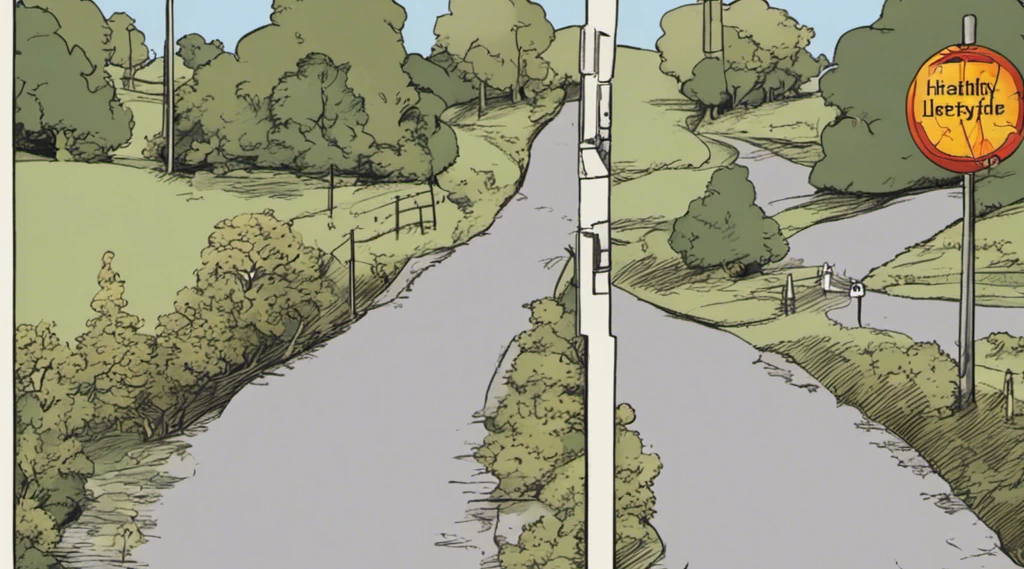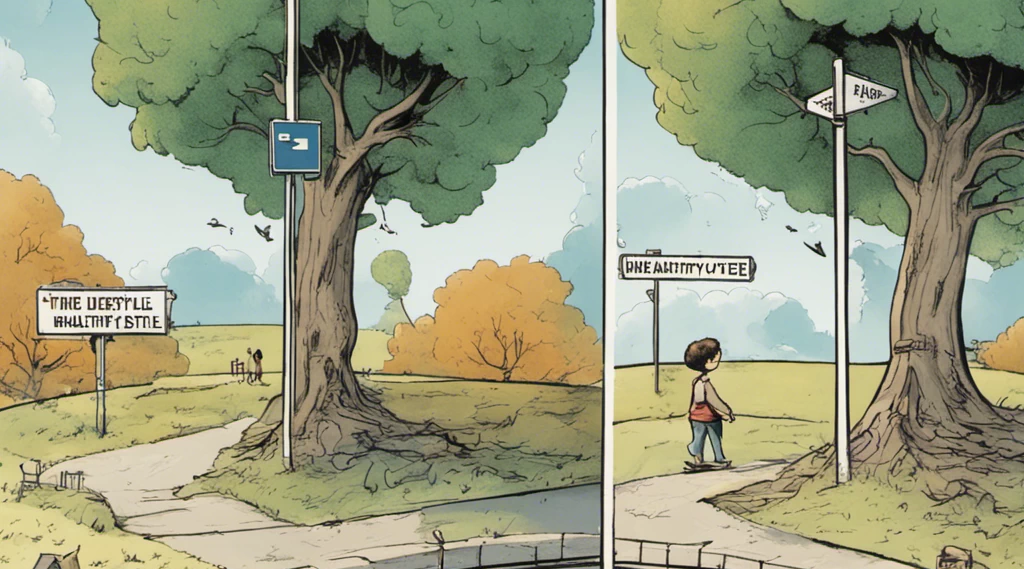
Sign up to get updates from us
By signing up, you agree to receive email from this podcast.
"Nudge" is a book that explores how subtle changes in the way choices are presented can positively influence people's behavior and help them make better decisions.

"Nudge: Improving Decisions About Health, Wealth, and Happiness" is a book written by Richard H. Thaler and Cass R. Sunstein. It explores the concept of "nudging," which refers to gentle interventions that can steer individuals towards making better choices in various aspects of their lives.
The authors argue that people often make irrational decisions due to cognitive biases and external influences. By understanding these biases and leveraging them in a positive way, policymakers and organizations can design choice architectures that guide individuals towards making choices that are beneficial for their overall well-being.
The book discusses various examples and case studies where nudges have been successfully implemented, ranging from encouraging healthier eating habits to increasing retirement savings. Thaler and Sunstein emphasize the importance of preserving individual freedom of choice while also recognizing that small changes in how choices are presented can significantly impact people's decisions.
Furthermore, they delve into the ethical implications of nudging and address concerns regarding paternalism and manipulation. They suggest that nudges should be transparent, easily reversible, and aligned with people's values to ensure they are used responsibly.
Overall, "Nudge" offers insights into behavioral economics, psychology, and public policy, providing readers with an understanding of how subtle changes in decision-making environments can shape behavior and ultimately improve outcomes related to health, wealth, and happiness.
According to reddit comments on Nudge, "Nudge: Improving Decisions About Health, Wealth, and Happiness" by Richard H. Thaler and Cass R. Sunstein is highly valued for several reasons:
Overall, "Nudge" is valued because it provides a unique perspective on decision-making, offers actionable insights, and encourages individuals to make better choices that lead to improved well-being.
In this article, we delve into the groundbreaking concepts presented in the book "Nudge" and explore how it transforms the way we make decisions. Drawing on behavioral economics and psychology, "Nudge" introduces the notion of gentle persuasion through subtle interventions, influencing our choices for the better. Join us as we uncover the profound impact of nudges on personal and societal decision-making, and unveil the potential for a more informed and empowered future.

The book "Nudge" was written by Richard H. Thaler and Cass R. Sunstein. It was first published on February 24, 2008.
Richard H. Thaler, an economist, and Cass R. Sunstein, a legal scholar, collaborated on this influential work. "Nudge" explores the concept of libertarian paternalism, which suggests that individuals can be guided towards making better choices without imposing restrictions or removing their freedom of choice.
In addition to "Nudge," Richard Thaler has written several other books, including:
Among these books, "Misbehaving: The Making of Behavioral Economics" is generally regarded as the most popular and well-received. It provides an engaging narrative of Thaler's career and the development of behavioral economics as a field.
"Nudge: Improving Decisions About Health, Wealth, and Happiness" is a book written by Richard H. Thaler and Cass R. Sunstein, published in 2008. The book explores the concept of "nudging" as a way to influence people's decision-making without taking away their freedom of choice.
The main idea behind the book is that individuals often make irrational choices due to cognitive biases, limited information, or lack of self-control. Thaler and Sunstein argue that by designing the choice architecture, or the way choices are presented, policymakers can subtly guide individuals towards making better decisions.
A "nudge" refers to any aspect of the choice architecture that alters people's behavior in a predictable way without forbidding any options or significantly changing their economic incentives. It could be as simple as changing the default option, providing clear feedback, or using social norms to influence behavior.
The authors discuss various examples of nudges in different domains, such as improving retirement savings, encouraging healthier lifestyles, reducing energy consumption, and enhancing organ donation rates. They also address potential ethical concerns surrounding nudging and emphasize the importance of transparency and public accountability in implementing these strategies.
Overall, "Nudge" promotes the idea that small changes in how choices are presented can lead to substantial improvements in people's lives, helping them make better decisions about their health, wealth, and overall happiness.
The theme of the book "Nudge: Improving Decisions About Health, Wealth, and Happiness" revolves around the concept of behavioral economics and how small changes in the way choices are presented can greatly influence people's decisions. The book argues that by understanding human biases and using subtle nudges, individuals and institutions can help improve outcomes in various areas of life, including health, finance, and overall well-being.
One key theme in "Nudge" is the importance of choice architecture. The authors, Richard H. Thaler and Cass R. Sunstein, suggest that the way choices are framed and organized can significantly impact decision-making. By designing the environment in which choices are made, policymakers and institutions can guide individuals towards better decisions without limiting their freedom or resorting to heavy-handed regulations.
Another central theme is the concept of libertarian paternalism. Thaler and Sunstein propose that it is possible to nudge people towards choices that will benefit them, while still respecting their autonomy. This approach recognizes that individuals often make irrational or suboptimal decisions due to cognitive biases and limited information. By providing gentle nudges in the right direction, policymakers can aim to help people make choices that align with their long-term goals and well-being.
The book also emphasizes the significance of default options. Thaler and Sunstein argue that defaults play a powerful role because most people tend to stick with the default choice rather than actively making a different decision. By carefully selecting default options, policymakers can shape behavior and encourage beneficial choices without coercion.
Furthermore, "Nudge" explores the idea of improving individual and societal outcomes through nudging. The authors present real-life examples and case studies to demonstrate how nudges have been successfully applied to issues like retirement savings, organ donation, and energy conservation. By providing tangible evidence of the effectiveness of nudges, the book encourages readers to consider the potential for these strategies to improve decision-making in many aspects of life.
Overall, the theme of "Nudge" is to highlight the power of small, subtle interventions to influence behavior positively. The book aims to promote a more nuanced and effective approach to decision-making by acknowledging human biases and designing choice environments that facilitate better outcomes for individuals and society as a whole.
If you're interested in exploring various formats and concise summaries of "Nudge", we suggest checking out platforms like Bookey. Bookey offers a diverse collection of books in different formats alongside short summaries, providing a quick overview of each book's content. This is particularly useful for individuals seeking a comprehensive understanding without investing too much time. For those who prefer visual aids, we highly recommend browsing YouTube, where you can find numerous videos related to the book, such as "Nudge: The Final Edition – a conversation with Professor Richard H. Thaler". These videos offer a more detailed and informative look at the book's contents. Unfortunately, we are unable to provide a PDF version of "Nudge" here as our main goal is to introduce the book's value and present additional reading options. Happy reading!
Nudge quotes as follow:
- This quote reflects the authors' belief that individuals should have the freedom to make their own choices, but with gentle guidance in the form of nudges.
- The authors introduce the concept of libertarian paternalism, which refers to influencing people's choices while still respecting their freedom. They argue that this idea may seem contradictory at first, but it can lead to positive outcomes.
- This quote highlights how people tend to stick with the default option or follow the path of least resistance, emphasizing the importance of designing defaults to lead to better decisions.
- The authors emphasize the impact that subtle nudges can have on individual behavior. By making slight modifications to the decision-making environment, significant improvements in outcomes can be achieved.
- This quote underscores the role of choice architects, who design the environment in which choices are presented. They have the power to influence decisions through the way information is framed or options are structured.
- The authors argue that effective policies and interventions don't necessarily need to limit people's freedom or impose strict regulations. Instead, they can provide helpful nudges that guide individuals towards better choices.
These quotes capture some of the key ideas explored in "Nudge," where the authors advocate for using behavioral science insights to help people make better decisions without compromising their autonomy.
If you enjoyed reading "Nudge" by Richard H. Thaler and Cass R. Sunstein and are looking for similar books, here are a few recommendations:
These books delve into similar topics as "Nudge," exploring human behavior, decision-making, and the factors that influence our choices. Each book offers unique perspectives and insights, making them worth exploring if you found "Nudge" intriguing.